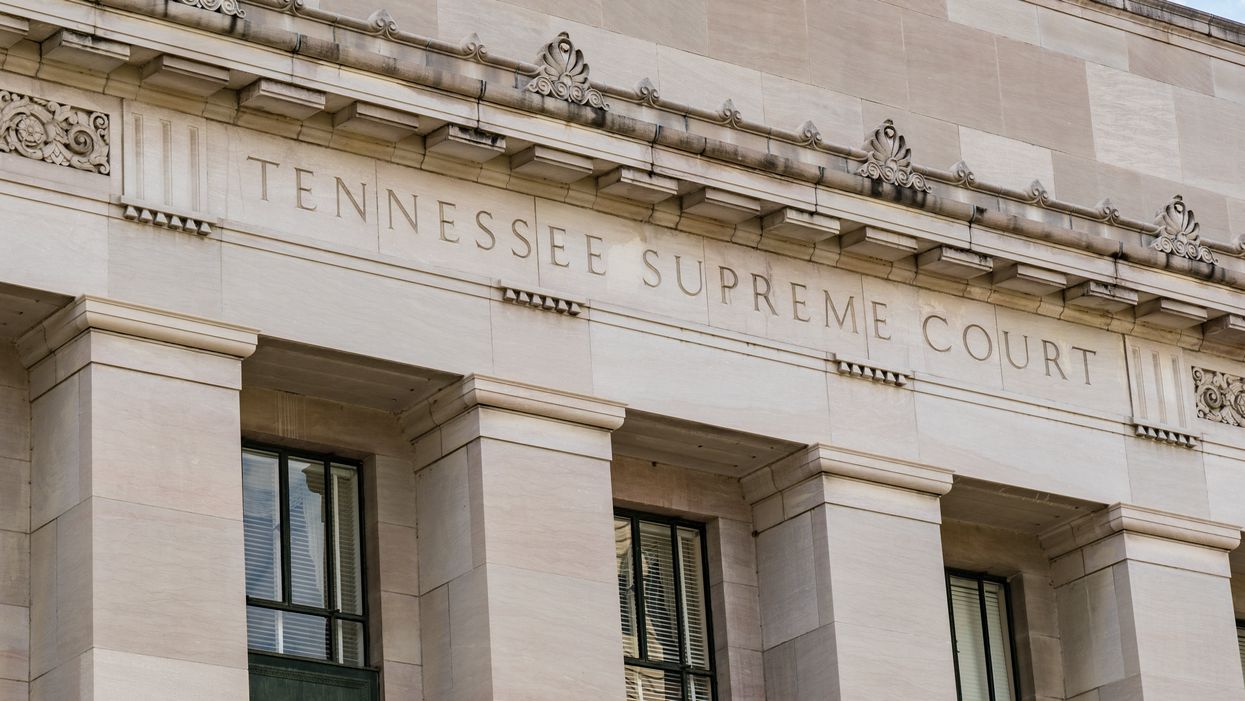The persistence of the pandemic is not a sufficient rationale for allowing everyone in Tennessee to vote by mail this fall, the state's top court has ruled, putting the state back on the otherwise shrinking roster of places with excuse requirements for getting an absentee ballot.
Wednesday's 4-1 decision by the state Supreme Court overturned a lower court's declaration two months ago that all eligible voters be permitted to use the mail this year in order to avoid Covid-19 exposure. It stands as the first time a state's top court has used an appeal to make absentee voting in November more restrictive.
As a result, there are now eight states where a reason beyond fear of the coronavirus will be needed to vote for president. Other than New York and Indiana, the rest are spread across the South; of those, all but emerging battleground Texas are reliably Republican red: Kentucky, South Carolina, Mississippi and Louisiana now joined again by Tennessee.
Eight other states have effectively dropped their excuse requirements for this year, one of the reasons why voting from home is destined to surge — maybe accounting for more than half of all votes cast, double the usual share, despite President Trump's efforts to discredit the practice with unfounded claims it produces fraud.
The Tennessee justices did not alter the rules for the record number of absentee ballots already cast for the primary Thursday. But their decision came just in time to govern the entire period for applying to vote by mail in the general election, which also began Thursday.
The state initially wanted the court to block any expansion of mail voting in light of the coronavirus, arguing local election officials could not accommodate, logistically or budgetarily, the subsequent avalanche of ballots. They also cited the risk of election fraud.
But at oral arguments, government lawyers said that being quarantined as a precaution, caring for someone with the virus or having an "underlying health condition" — which voters were free to decide for themselves — allows voters to check the "illness" box on their application forms.
"The state's interests in the efficacy and integrity of the election process are sufficient to justify the moderate burden placed on the right to vote" for people not covered by the newly promised easements, Justice Cornelia Clark wrote for the court.
She also told Tennessee officials to quickly detail for the public the state's new view of Covid-19 and mail voting.
That prompted a qualified embrace of the decision from the American Civil Liberties Union, which helped sue over the expansion.
"The court should have gone further, however, and ruled that all eligible voters have a right to vote safely by mail," said the ACLU's top voting rights attorney, Dale Ho. "But this ruling remains an important victory for many Tennessee voters."
The General Assembly also returns next week for a special session, where minority Democrats are expected to take another run at legislation expanding the excuse rules. Republican Gov. Bill Lee has vowed to veto such a measure, though.
Fewer than 3 percent of the state's votes have arrived in envelopes in recent elections, one of the smallest shares in the nation. Even before the court's decision, Republican Secretary of State Tre Hargett was preparing for that percentage to soar — because 1.4 million voters, more than a third of those registered, are automatically eligible to vote absentee because they've had their 60th birthdays.
The Lawyers' Committee for Civil Rights Under Law and the Campaign Legal Center have filed a federal lawsuit seeking unfettered mail voting and also challenging three other curbs on the practice. One is an unusual rule preventing the newly registered from casting their first votes by mail unless they apply for the ballot in person and show proof of identity.
Trump can count on the state's 11 electoral votes, which he won last time by 26 points. Turnout in the 2016 election was 62 percent, but it may be less this year because of a lack of any competitive statewide races.
The winner of Thursday's hotly contested GOP primary for the Senate seat held by Republican Lamar Alexander, who's retiring, is a near shoe-in come November. That race is between Bill Hagerty, who was Trump's ambassador to Japan, and Manny Sethi, an orthopedic trauma surgeon running as a conservative outsider ready to take on the "establishment" while still supporting the president.




















Trump & Hegseth gave Mark Kelly a huge 2028 gift